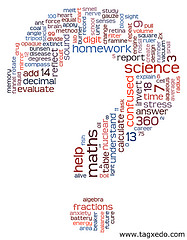Games for vocabulary
By Mary Bigelow
Posted on 2015-10-29
 I like to provide activities that help students learn science vocabulary, but at a recent department meeting we discussed the value (if any) of word games and puzzles. Do you have any insights or research on the topic? –W., New York
I like to provide activities that help students learn science vocabulary, but at a recent department meeting we discussed the value (if any) of word games and puzzles. Do you have any insights or research on the topic? –W., New York
Many K-12 teachers use word games and puzzles to help students review concepts and learn vocabulary. The puzzles are available to students who finish other activities early or in emergency packets for substitute teachers. As long as they are not overused, many students seem to enjoy puzzles as well as word games that include active use of the words.
Find-a-words or jumble puzzles focus on word recognition, and I’m not convinced they are effective learning tools worth the time to find, create, or solve (or assign as homework, as I once saw a teacher do). On the other hand, crossword puzzles and similar games ask students to think of words to fit the clues (or clues to fit the words), which reinforces a knowledge of definitions and context, spelling, and differentiating between similar terms.
Teachers spend many hours creating or finding puzzles, duplicating them, and using class time for students to complete them. How do we know if solving these puzzles is an effective learning strategy?
I found a study, Reviewing for Exams: Do Crossword Puzzles Help in the Success of Student Learning?, that looked at the value of this type of review. The introduction describes different types of puzzles and a rationale for using each. The results of the study were mixed, but the conclusions are fodder for discussion. For example, do students understand that games and puzzles can help them learn, as opposed to being strictly a recreational or “fun” activity? (I sometimes used a crossword puzzle as an alternative to a traditional quiz. The students were incredulous at first: “This is fun—it can’t be a quiz!”)
In NSTA’s Journal of College Science Teaching (JCST), the authors of Utility of Self-Made Crossword Puzzles as an Active Learning Method to Study Biochemistry in Undergraduate Education put a different spin on puzzles. Rather than asking students to complete teacher-made puzzles, the students were asked to create crosswords using key concepts from the course. (The article has the instructions for the puzzle-makers and an example.) A majority of the students felt that the puzzles enhanced their learning of biochemical concepts and their exam scores were slightly higher (although no level of significance was included).
Designing and Solving Crossword Puzzles: Examining Efficacy in a Classroom Exercise describes a case study with suggestions and comments from students, including the survey questions that were used. The article also has a discussion of the value of word games in the classroom.
These studies were conducted with college-level students. It would be interesting to repeat with younger students, and I thought of some questions that would make interesting action research at the K-12 level (and a professional development opportunity): What would happen if other students were given peer-created puzzles to solve—would this additional level of review be helpful? Would this provide feedback on the clarity of the clues or help designers target the areas they need to study more? What would the design process look like as a team project?
From the example given in the JCST study, it appears that the puzzles were created manually with students manipulating the words, creating the puzzle grid, and submitting a version in which they filled in the answers. Would there be a difference if the students were to use an online puzzle generator or app in which most of the design work was done by the program? Hmmm…
Disclaimer: The views expressed in this blog post are those of the author(s) and do not necessarily reflect the official position of the National Science Teaching Association (NSTA).


